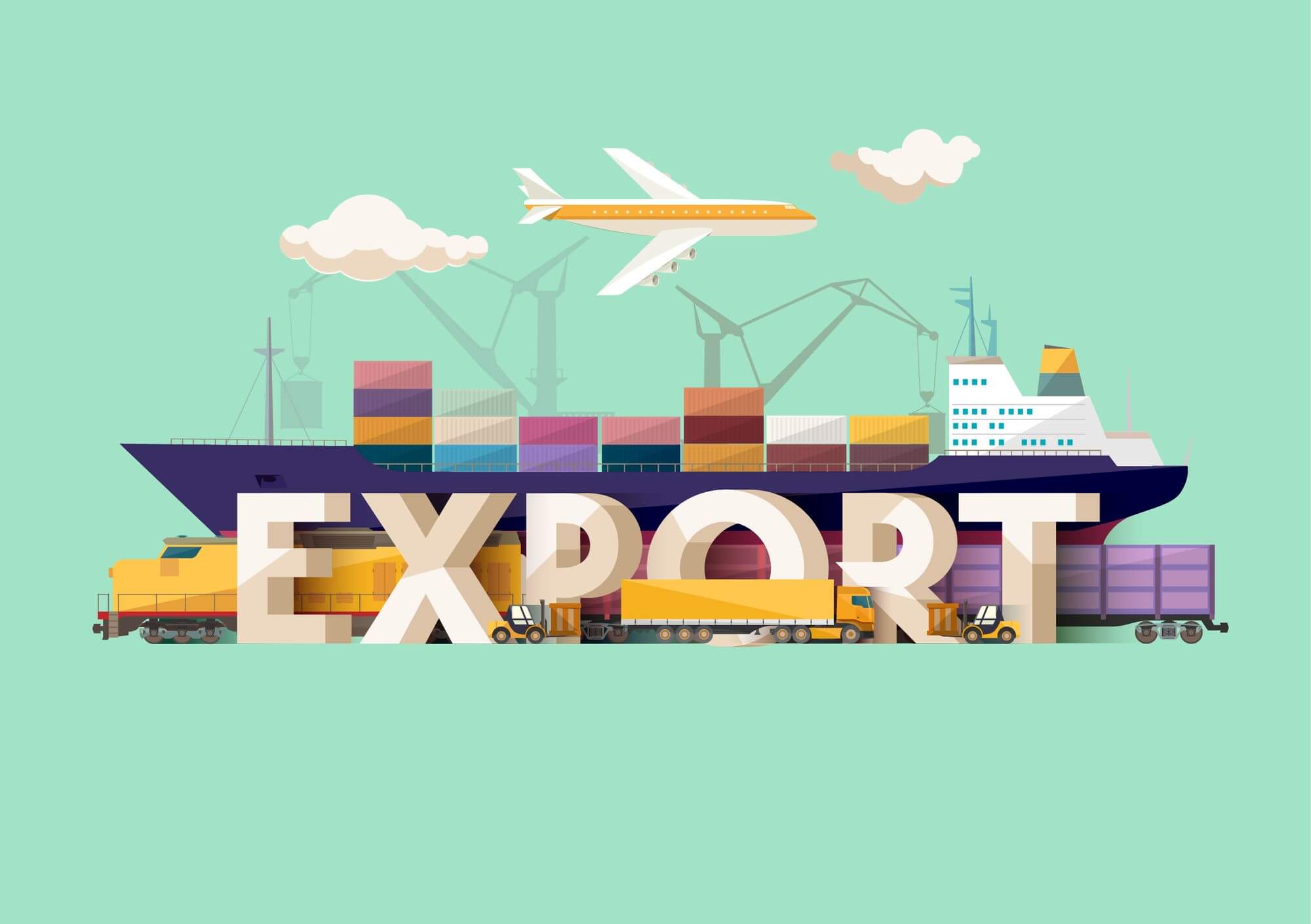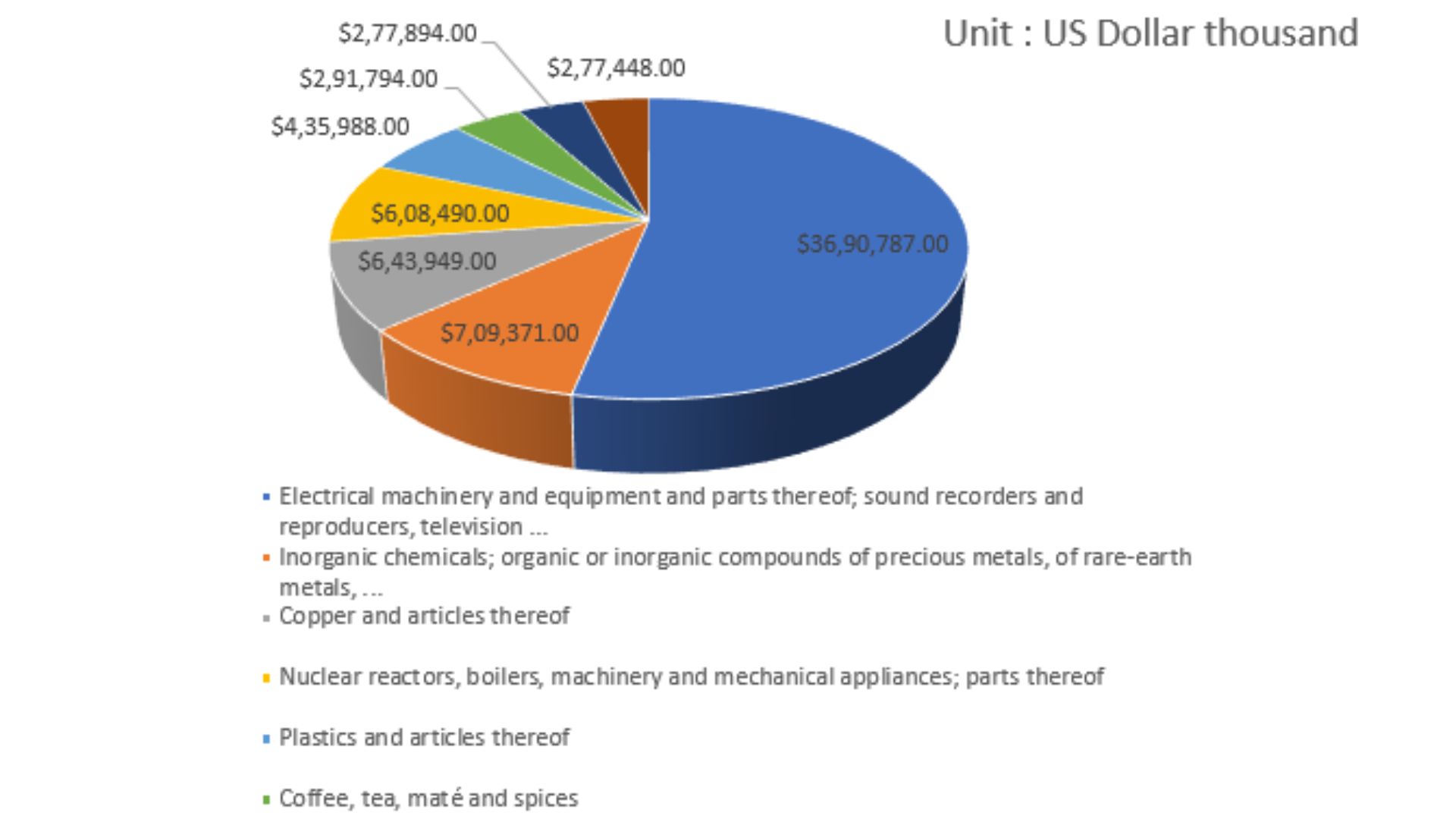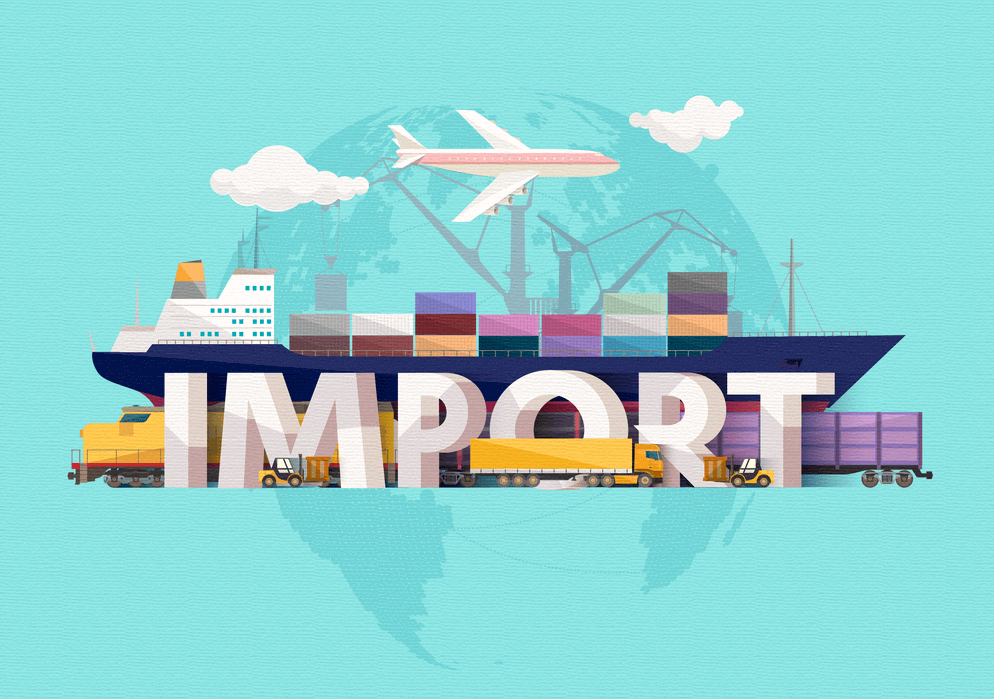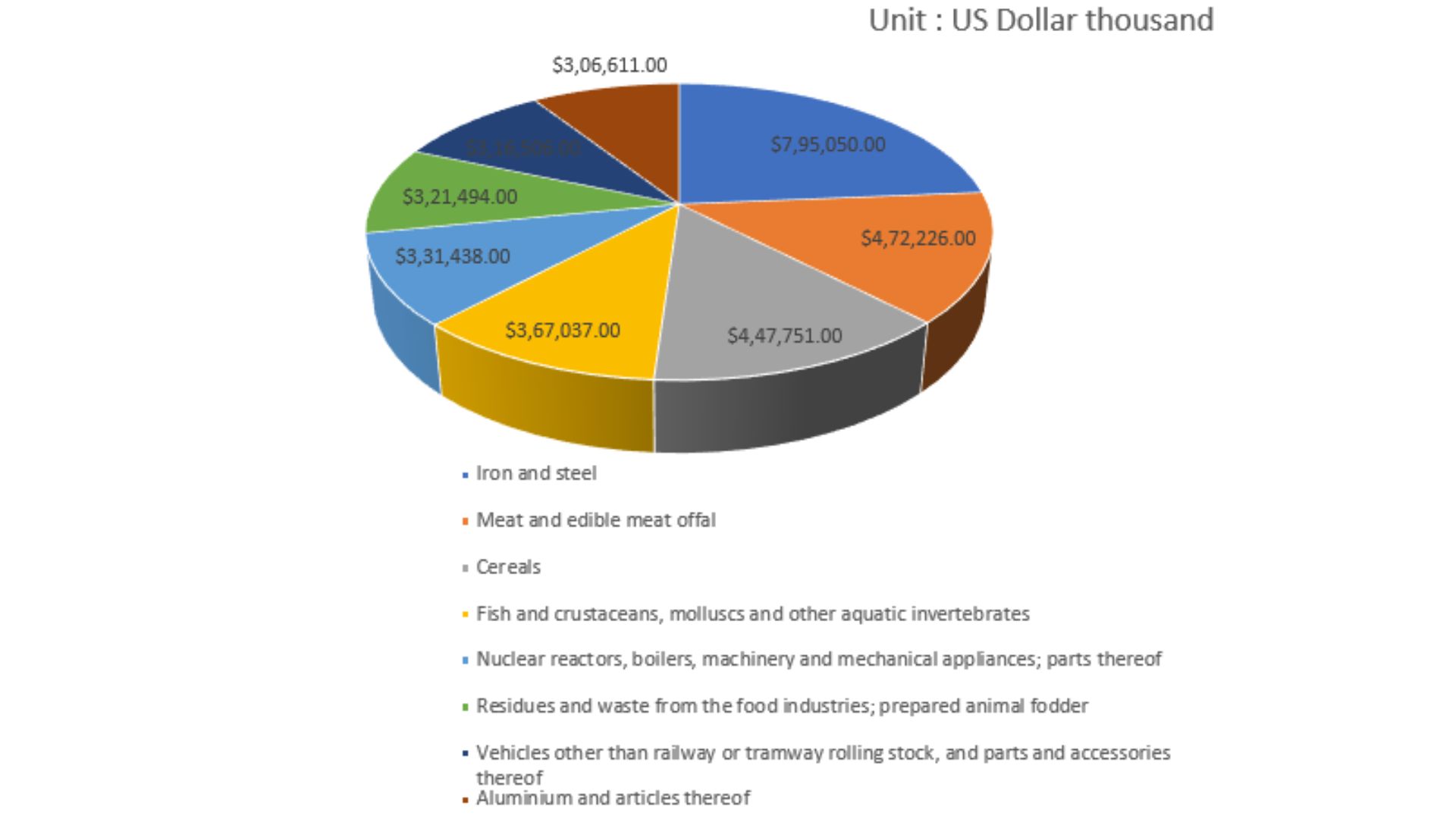
Export of the Vietnam

In 2022, Vietnam's exports to India encompassed a diverse range of goods, reflecting the
bilateral trade relations between the two nations. Electrical machinery and equipment,
along with parts thereof, including sound recorders and reproducers, television
components, constituted a significant portion, totalling $36,907,870. Inorganic
chemicals and compounds of precious and rare-earth metals followed, amounting to
$7,093,710. Copper and its articles comprised another substantial export category,
accounting for $6,439,490, while nuclear reactors, boilers, and mechanical appliances,
along with their parts, contributed $6,084,900 to the export total. Additionally,
plastics and plastic articles constituted $4,359,880 of the exports, while coffee, tea,
mate, and spices accounted for $2,917,940. Fertilizers and rubber and articles thereof
represented $2,778,940 and $2,774,480, respectively. These figures underscore the
breadth and depth of Vietnam's export portfolio to India, highlighting the robust trade
ties between the two countries across various sectors.


Import of the Vietnam

Vietnam's import data from India unveils a diverse array of commodities contributing to
the bilateral trade relationship. Iron and steel imports stand out significantly,
totalling $7,95,050.00, underlining Vietnam's demand for raw materials crucial for its
industrial activities and infrastructure development. Additionally, meat and edible meat
offal imports, alongside cereals and fish-related products, signify Vietnam's reliance
on India for essential food supplies to meet domestic consumption demands. The import
figures for nuclear reactors, machinery, and mechanical appliances further highlight
Vietnam's quest for advanced technologies and machinery to fuel its industrial growth.
Moreover, imports of residues and waste from the food industries underscore Vietnam's
engagement in recycling and resource utilization efforts. Meanwhile, vehicles and
aluminium imports reflect Vietnam's increasing consumer demand and infrastructure
development initiatives. These imports from India not only cater to Vietnam's domestic
needs but also underscore the robust trade ties between the two nations, facilitating
mutual economic growth and cooperation.
